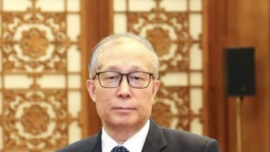The “middle of next” year will be an “appropriate” time to reveal more information on the renewal of gaming licences, Chief Executive Fernando Chui Sai On said in November, following his Policy Address for 2018.
That is, we will have news in half a year (*) – which does not mean that decisions are no longer being taken.
 As gaming analyst Ben Lee of IGamiX consulting firm tells Macau Business: “I would not be surprised if discussions are already underway between the Macau China Liaison Office and our Department of Finance on the likely templates to be used for the new bidding process.”
As gaming analyst Ben Lee of IGamiX consulting firm tells Macau Business: “I would not be surprised if discussions are already underway between the Macau China Liaison Office and our Department of Finance on the likely templates to be used for the new bidding process.”
Although the management of gaming is one of the autonomous functions of the MSAR Government and there is no apparent justification for China’s involvement in light of the Basic Law, the truth is that great decisions have long been made in Beijing – it is China who can open or close the tap of Chinese tourists.
Thus, when it was learned that Sheldon Adelson ‘traded’ in 2001 with the then Chinese Vice-Premier Qian Qichen, the future of gambling in Macau, few were surprised.
Similarly, the letter which Steve Wynn handed to Donald Trump at the end of last year asking for the extradition of Guo Wengui, a Chinese businessman now seeking asylum in the United States, should be similarly interpreted. According to The Wall Street Journal, Wynn hand-delivered a letter written by the Chinese Government, in what the newspaper dubbed “worthy of a spy thriller.”
Good concessionaires’ relations with China can therefore be an important factor. In a research note published in November about new gaming licences, the Nomura brokerage observed: “other factors that could come into play include: ownership structure; relationship of senior management with Beijing.”
The assumption, then, is that Beijing and Macau have already made up their minds about the big decisions, which will be revealed in the early Summer.
Recent statements by Macau’s Secretary for Economy and Finance, Lionel Leong Vai Tac, encourage us to think in this direction: “We cannot forget that the gaming sector is predominant and to guarantee its sustainable development we need to pay close attention to international competition . . . Before we announce the new rules, we need to think about the appropriate time to do so, in order to guarantee the sustainable development of the [gaming] sector.”
[If, for example, the solution was renewal for two years for the SJM and MGM concessions in order to balance all operators by 2020 there would certainly be no problem with competition nor would anyone copy the template]
* To bid out already in 2019
Not everyone took seriously the revelation made by Chui Sai On that there will be news in mid-2018. After all, the then Secretary for Economy and Finance Francis Tam said in 2013 that “the year 2015 will be the appropriate time to discuss with the gaming operators how to renew the concessions.” Time passed, nothing happened.
Still, Chui Sai On is not the Secretary for Economy. And what the Chief Executive said was only to reaffirm what was stated by Paulo Martins Chan in a Macau radio interview in April 2016.
“An ideal timetable would be to bid out the concessions in 2019 just before the first one expires in 2020,” posited Ben Lee to Macau Business, enabling authorities “to clear the current greyness (legality) of the sub-concessions and clear the uncertainty over the number of new concessions, requirements of the new concessions in terms of new investment, taxation regime and amount of premium exacted.”
According to the IGamiX managing partner: “Why prolong the uncertainty for another two years when the new concession winners could already be planning and laying the foundation for the new direction that the government has always wanted – (i.e.) a World Centre of Tourism and Leisure – by 2020 rather than 2022?”
Lee is “sure that the current concessionaires would also want to have certainty earlier rather than later so they can forward plan their long-term strategies,” adding that this proposed timetable would “provide sufficient time for an orderly transition between the old concession holders to the new ones, should this be one of the outcomes (we foresee the possibility of one or more of the concession holders changing their equity structure to maximise the chances of their winning a new concession).”
























